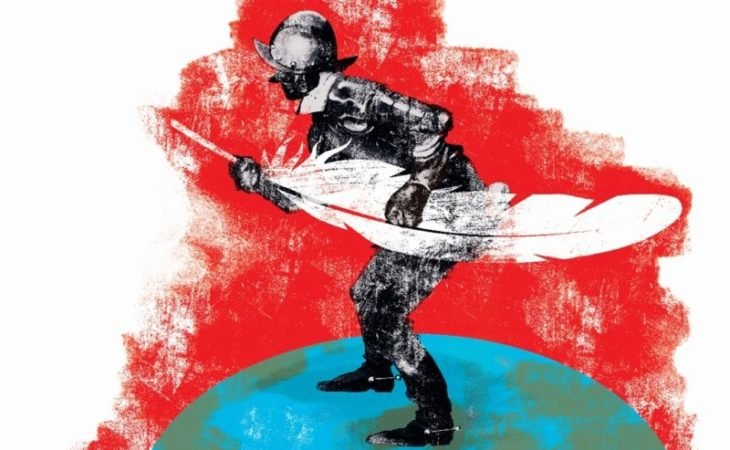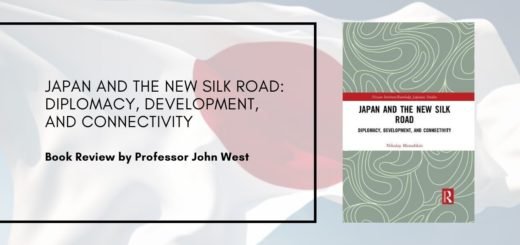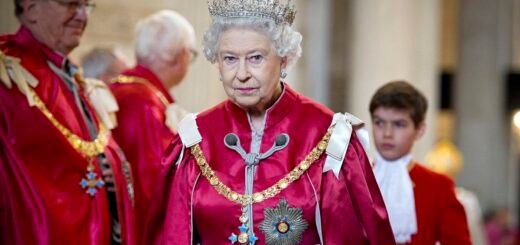Hybrid War and Neocolonialism: Rewriting History

The Soviet model of development had many drawbacks and ultimately proved unable to compete with the free economies of the West. However, even though the USSR allowed no free enterprise, free speech or a multi-party system, it still had some important advantages. In its foreign policy, Soviet Russia was guided by the principles of internationalism and equality of all races and nationalities. From its very outset, the Soviet Union actively supported anti-colonial movements, upholding the right of nations to self-determination, the development of their native languages and their cultural advancement. Even the principle of territorial autonomy that existed in the Soviet Union implied the right of each nation to preserve its own customs, language and cultural traditions.
It so happened that all of the USSR’s friends and foes during the Second World War were colonial powers. The latter were the Axis countries: Italy, which had invaded Ethiopia, the last independent country in Africa; Japan, with its ruthless policy of robbery and violence in China and Korea, and Germany, hell-bent on getting back its colonies in Africa.
The former included England and France, the two largest colonial powers, which controlled almost all of the African continent and, along with the Soviet Union, fought the Nazis. However, the “Great European Powers”’ hard-won victory did eventually force them to reconsider their colonial policy. By the mid-1960s, Europeans, including those under the influence of the Soviet Union, had been forced to leave Africa and grant independence to their former colonies, many of which were getting assistance from the Soviet Union, often on an absolutely free-of-charge basis. The USSR had now its own zones of influence in Europe, where it established socialist regimes.
However, no country in the Soviet bloc had its national identity infringed upon, and its native language banned. They were all heavily subsidized by the Soviet Union and still, not one Soviet leader ever made any insulting statements about any nation. Unlike even Mahatma Gandhi, the liberator of India and a fighter against colonialism, who sometimes put his fellow Indians above the Africans.
After the Soviet breakup and Russia’s weakening, however, neocolonialism reared its head. The concept of a new colonial policy pursued by a number of countries is more than just about economically strangling the Third World states; it also implies an ideological struggle. Since the start of this century, the blame for the outbreak of WWII has increasingly been put on the Soviet Union, and many freedom fighters in Africa are now declared “agents of the Comintern.”
Moreover, having destroyed monuments to ideologues of socialism and state leaders, Europe got down to the business of “finishing off” the Soviet legacy, tearing down memorials to Soviet soldiers, its onetime saviours. On April 3, without notifying the country’s leadership, Ondrej Kolar, the mayor of one of the municipality districts in the Czech capital Prague, ordered the removal of the monument to Soviet Marshal Ivan Konev, who liberated Czechoslovakia from Nazi occupation in 1945 and prevented the destruction of its capital.

“The statue had no face mask,” jeered the Czech official, who had studied in the United States, adding that this was a violation of the quarantine. A few days later, a monument to Russian soldiers, who fought during the Second World War in Bulgaria, was vandalized. Naturally enough, all this caused an angry reaction by Moscow.
Russia’s defence minister Sergei Shoigu asked the Czech authorities to hand over the monument to Russia, only to be told that even though the country’s leadership condemned the local official’s initiative, it would still not be able to return the monument since it did not actually own it. Even though Czech politicians have not always been that scrupulous, just as it was with the theft of humanitarian aid sent to Italy, and their refusal to cooperate with other countries affected by the coronavirus outbreak. And still, the neocolonialists have achieved their goal, and another page of history has been rewritten. There is one thing we should all bear in mind, however. Even though the Soviet assistance to most African countries was not necessarily critical, the loans made available by Moscow were provided on more favourable terms compared to those offered by the West. Moreover, the specialists and educational programs, which the USSR shared with the African countries, helped them avoid a new colonial dependence on Western corporations. In this day and age, it is hard to imagine the demolition of the monument to the Africans, who fought in the First World War in France, and the destruction of the graves of colonial troops in Europe. Hard, but still possible, because neocolonialism has no principles since all it wants is profit. This is why there is little if any, US and Western European assistance to the African countries amid the current pandemic. After all, the only aid they can count on will most likely come from Russia and China, not from the EU and America


















